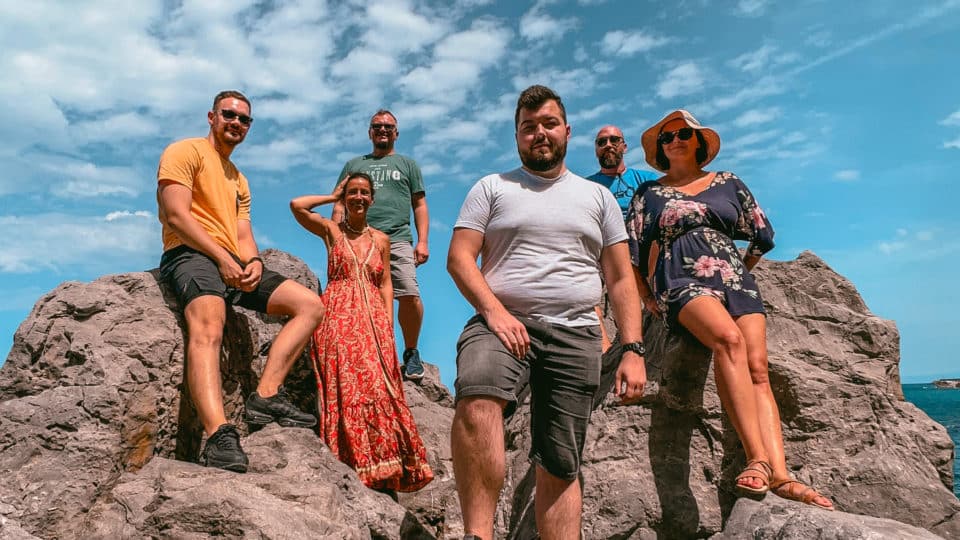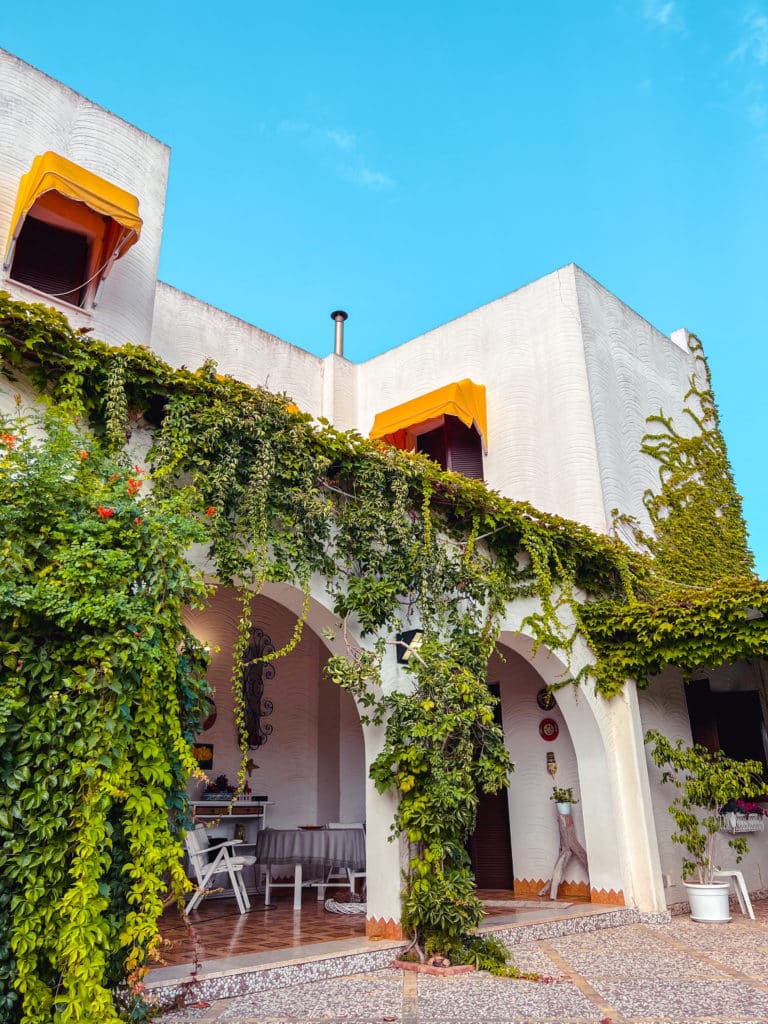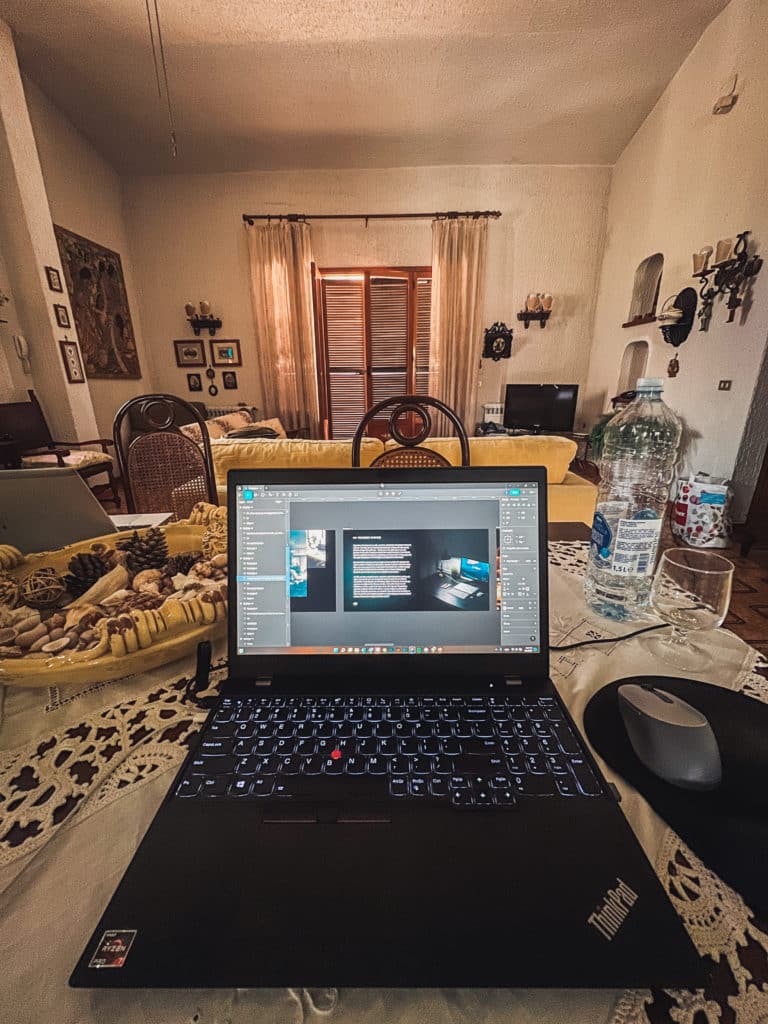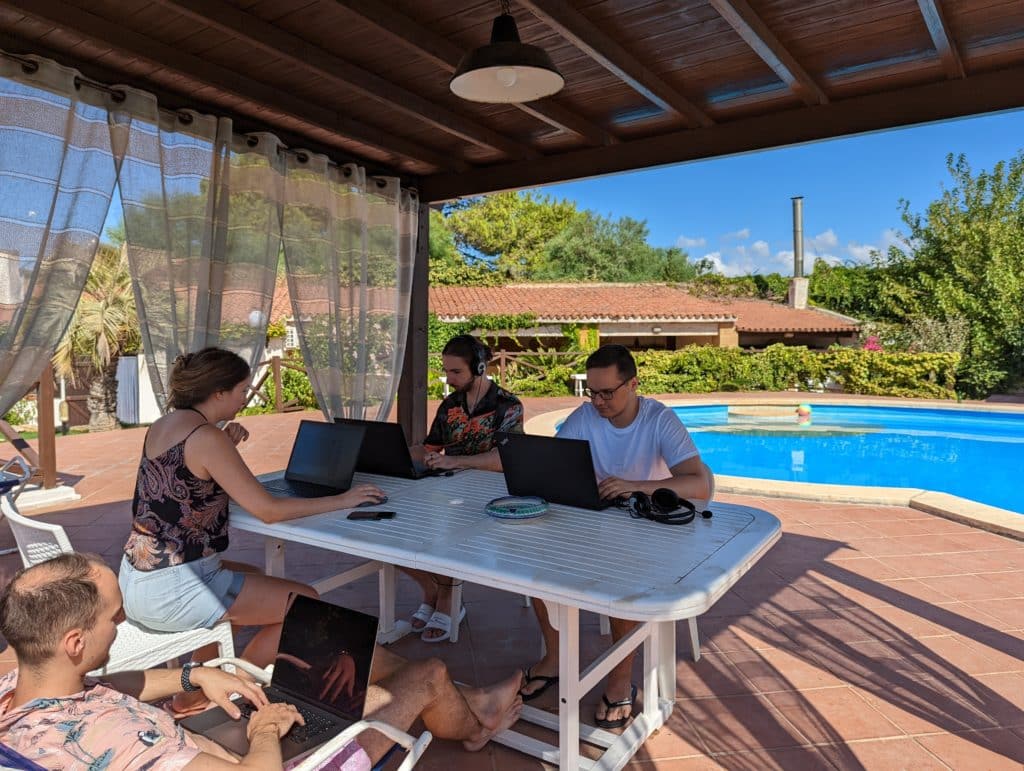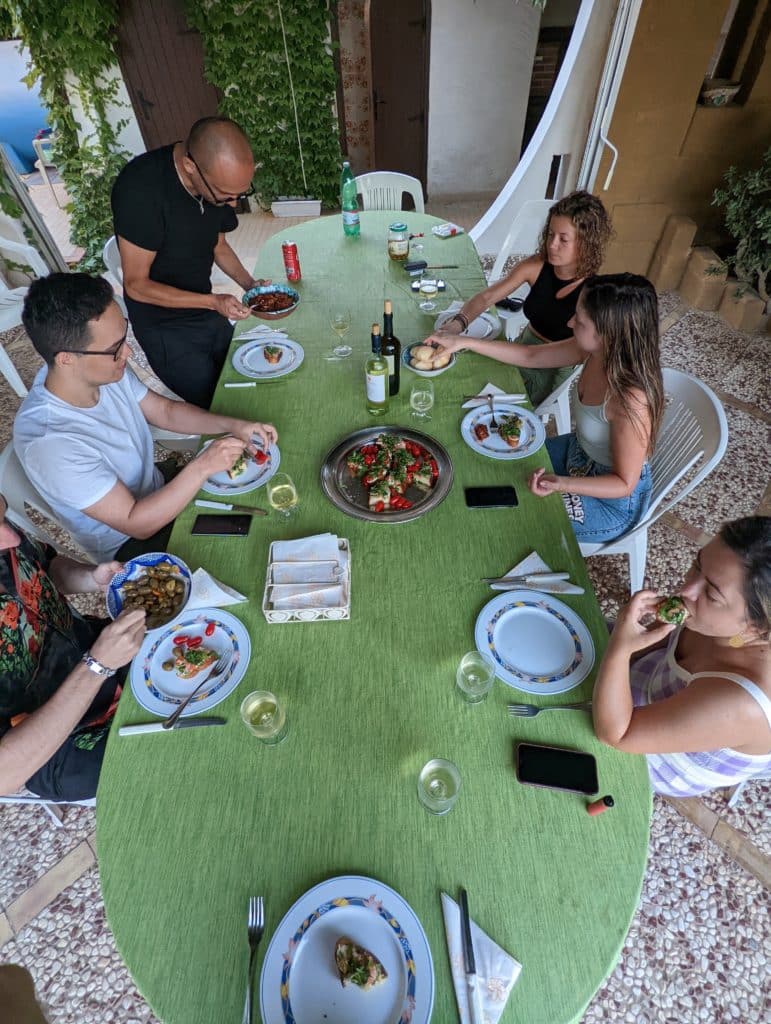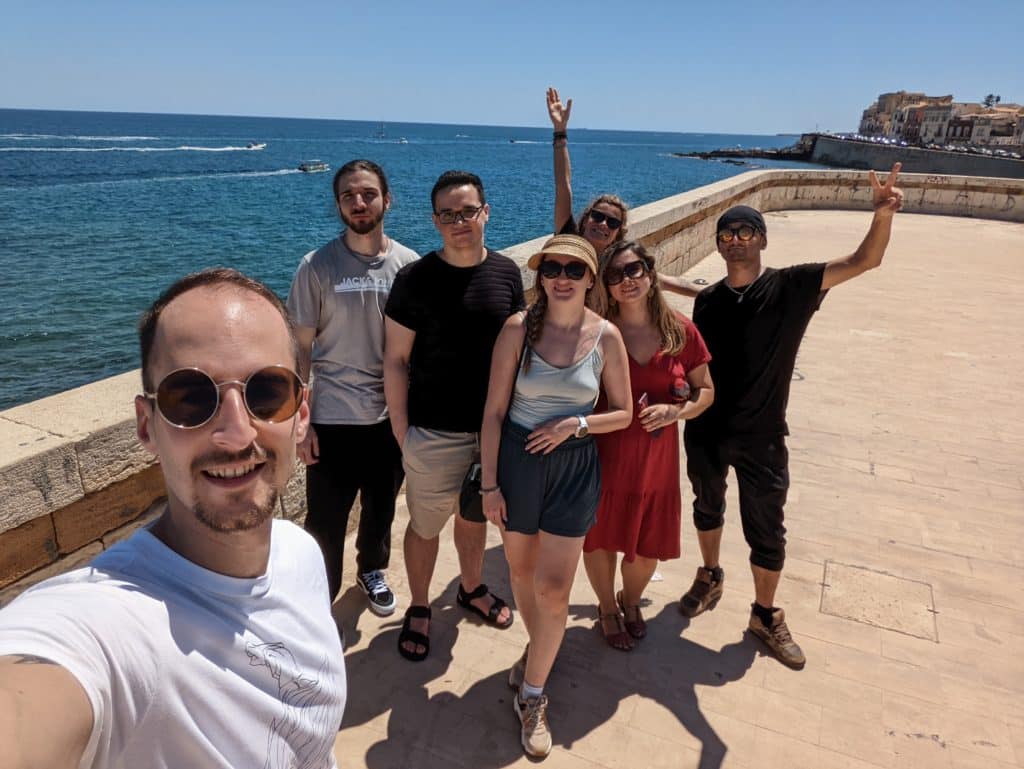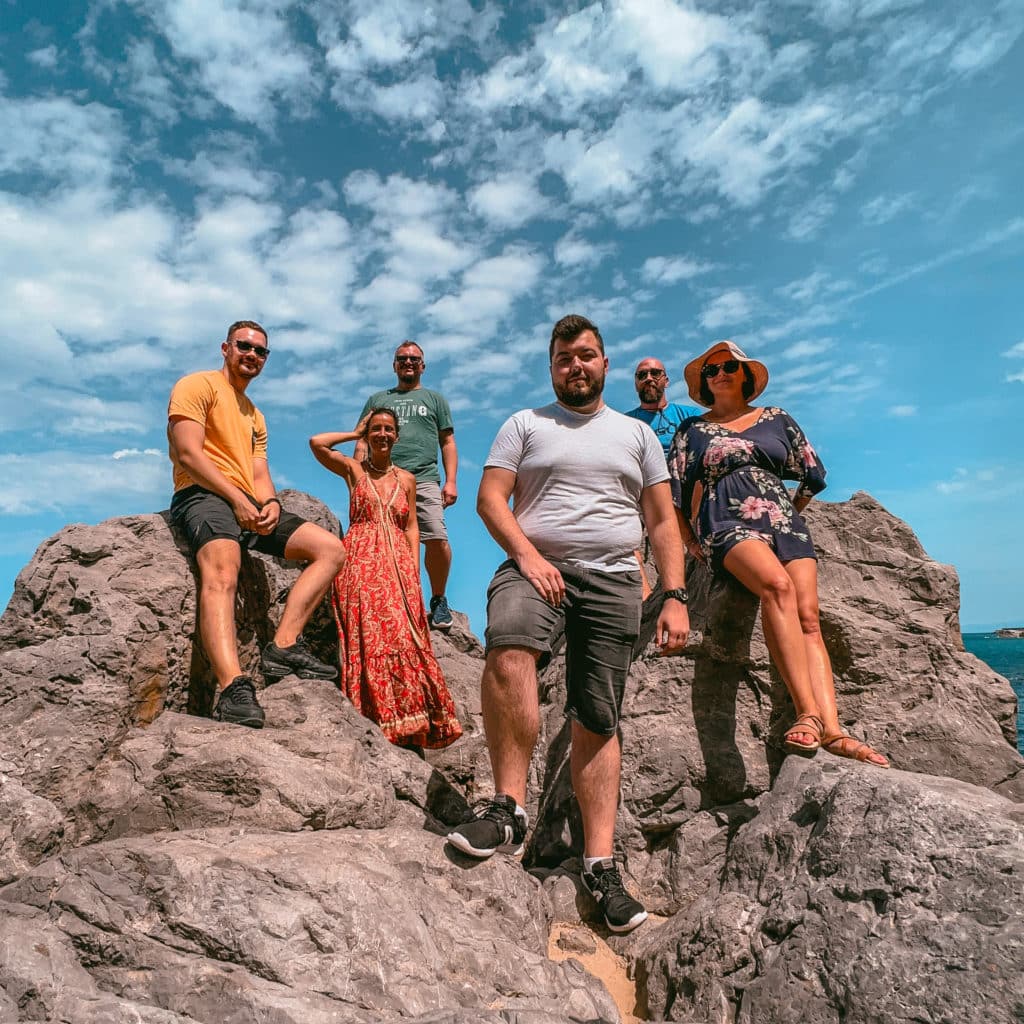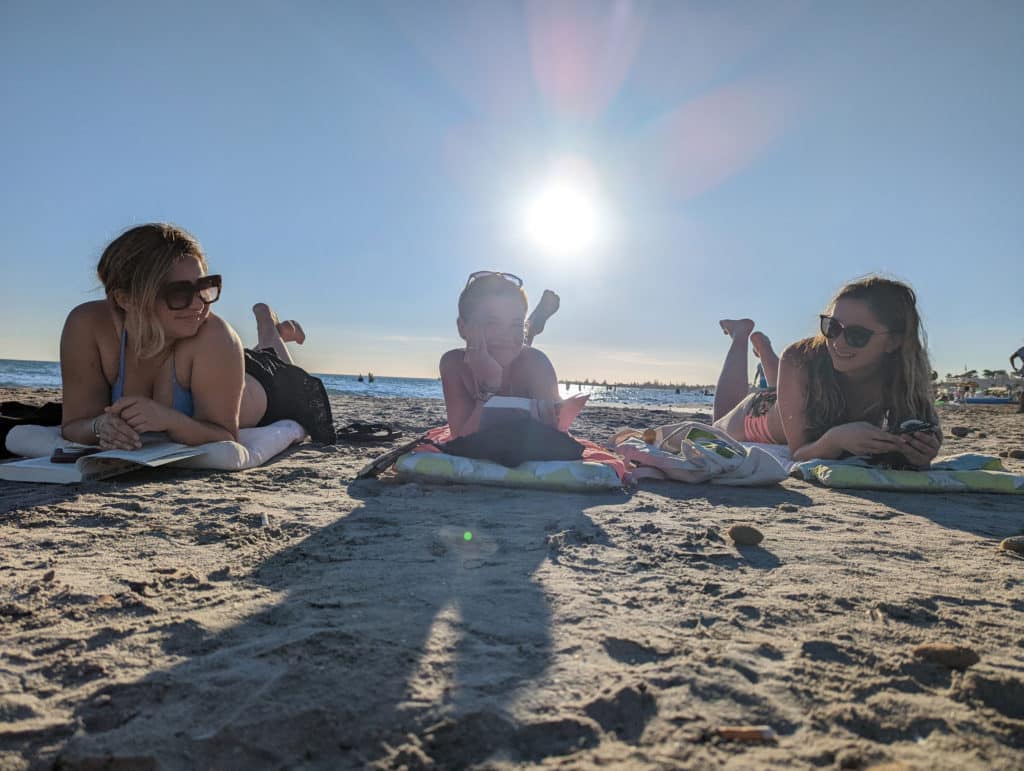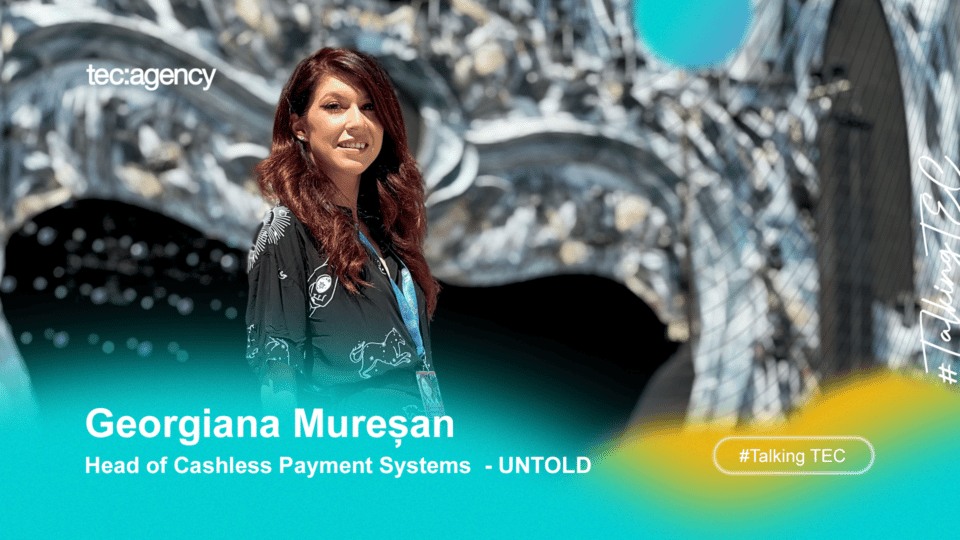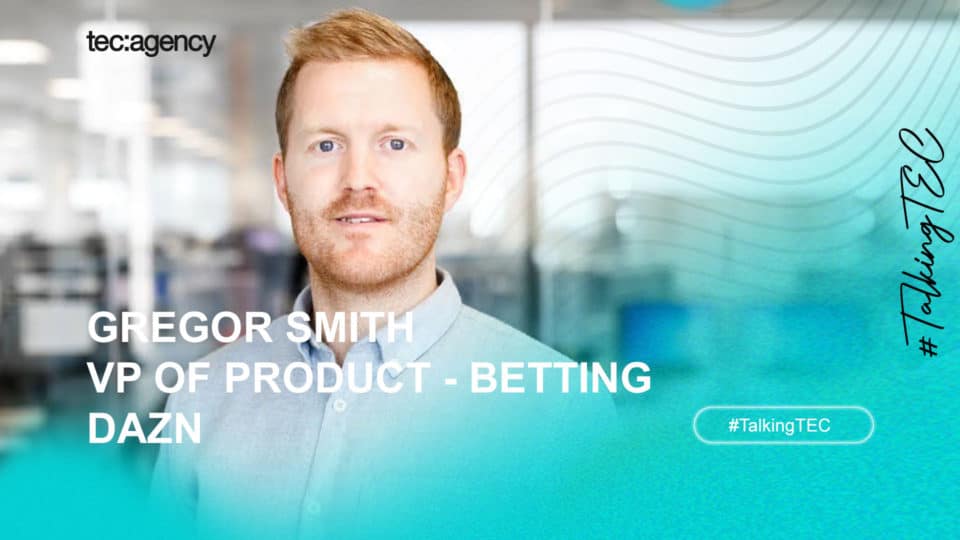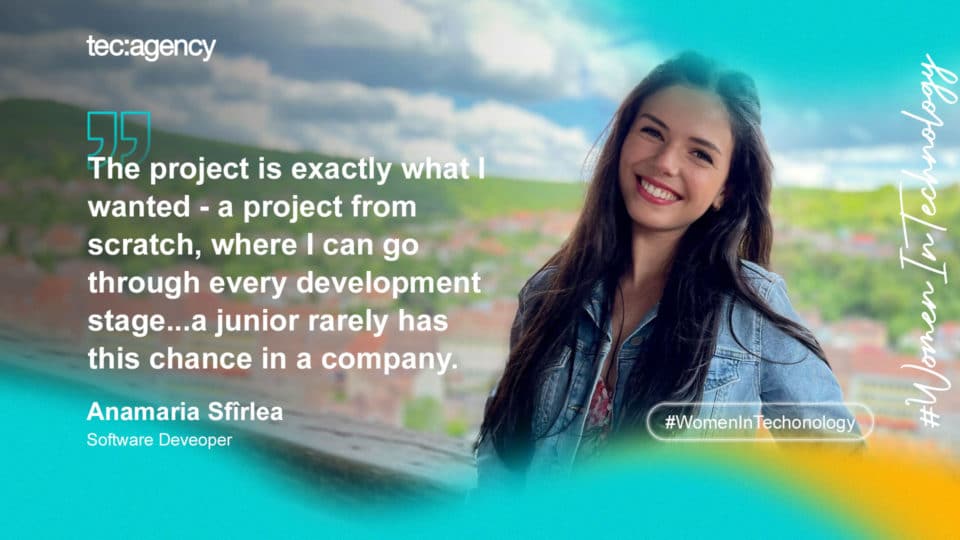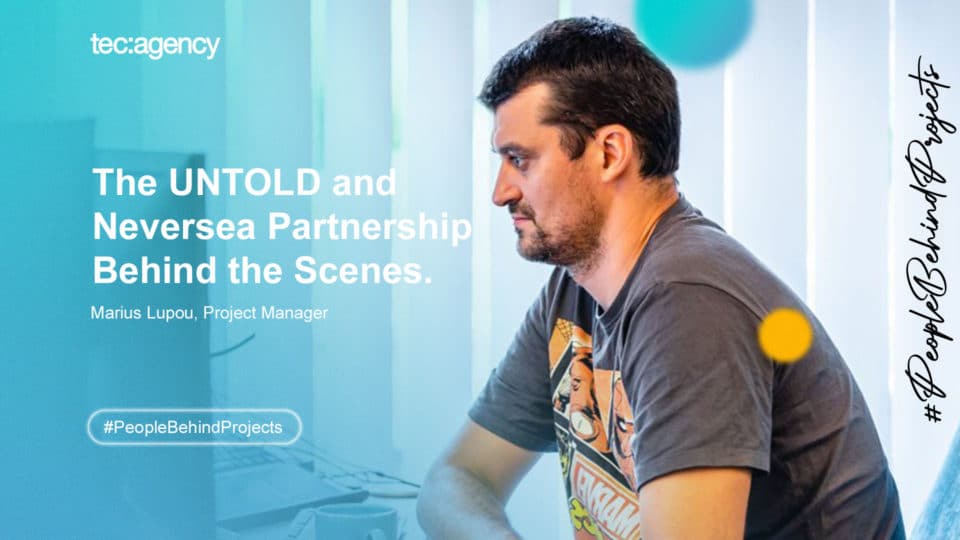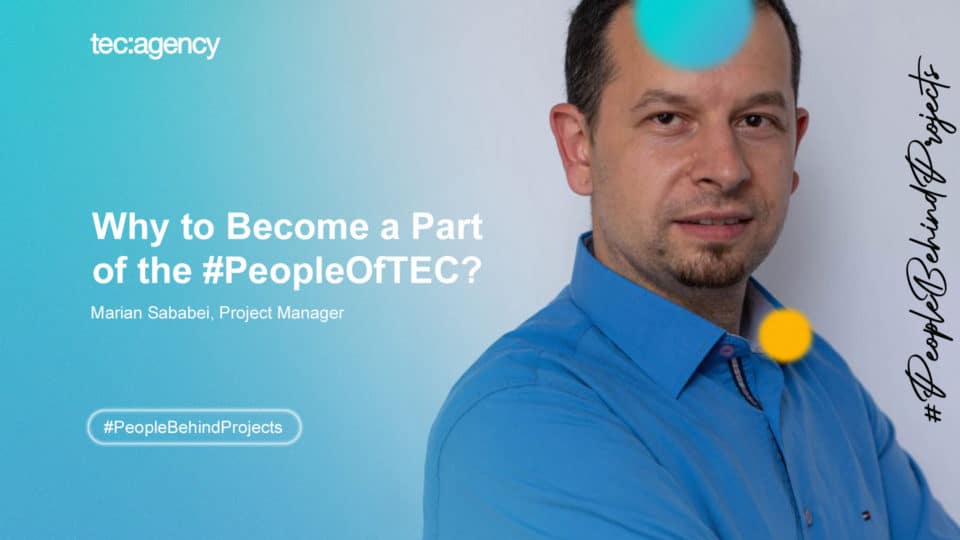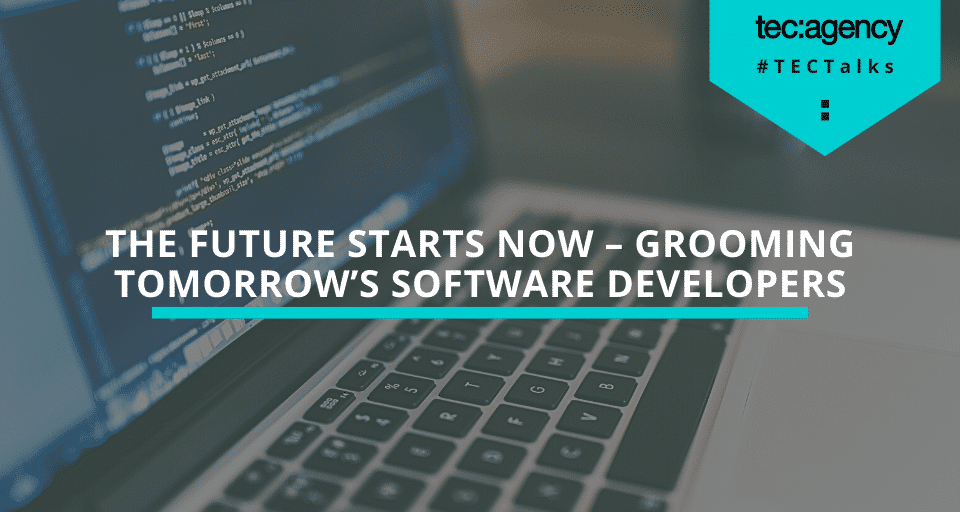-
Remote working, but with a twist!
Working from a seaside villa on a beautiful sunny island may sound like the dream “office environment” but, this summer, TEC was able to make this dream a reality…
Digital technologies have radically changed the expectations of society and enterprise over the past two decades. The COVID-19 epidemic hastened this process, which resulted in the widespread use of the remote work method.
Modern life is spent online, and this has blurred the lines between our personal and professional lives. For instance, with emails readily available on your phone, it is common practice to check and respond to work messages at all hours, no matter where you are, or what you are doing. Employees have adapted to this increased connectivity but also expect the increased workplace flexibility it creates.
As a result, the notion of work/personal life balance has expanded to include finding the best personal environment to work from.
At TEC, we decided to embrace this new notion of work/life balance and so we established an innovative pilot project where we rented a coastal home in Sicily and offered our coworkers the chance to work from there. The purpose of this project was to provide a relaxing setting while simultaneously giving people an opportunity to interact and develop ties with one another.
It was decided to send employees from different departments, from management to HR, each with their own set of duties and tasks to work on, rather than a whole team. Additionally, because the projects they were working on at the time were distinct from one another, they had the opportunity to learn new things from each other. Besides that, one of the major advantages of this project was the team-building component, which greatly aided their current and hopefully future teamwork.
We caught up with the colleagues who attended to get their impressions of their experience after their return. Overwhelmingly, they felt that both from a professional and a leisure perspective, the whole experience was something unique and revitalizing which gave them a great chance to spend some time with colleagues. One team member described the experience as “the best work week ever” saying:
“It was refreshing to be in a place which gives you the experience of a stroll on the beach after work, or a quick swim in the pool during a break, all of these without lowering the focus on work.”
Maintaining this focus and ensuring that productivity remained high was a key consideration with the scheme but, if anything, productivity levels improved with employees citing the change of environment as an important factor: “Since my work is not focused on only one thing, I was able to prioritize some of the tasks that involved people management. Since I had such a nice environment, I was very productive in communicating with them and discussing the challenges they have on projects and within their teams.”
When asked what they enjoyed the most about the experience, one answer that stood out and neatly summed up the others was: “The accommodation itself was beautiful, the fact that it was a few steps away from the sea was amazing, it allowed me to go there early in the morning and then immediately after work. Being with colleagues offered the opportunity to learn things about each other which otherwise would not have been possible.”
The pilot project was a remarkable success with productivity maintained while promoting employee wellbeing and fostering a positive, modern work/life balance for those who participated. At the outset, the idea of sharing a home with ten colleagues you barely know may have sounded daunting but it allowed those involved to develop a stronger feeling of reciprocal responsibility, assist one another with household chores, find shared interests, and ultimately have a lot of fun. So much so that when asked if they would repeat the experience, all participants answered yes!
-
-
Talking TEC with Georgiana Mureșan, Head of Cashless Payment Systems – UNTOLD
Ahead of this year’s record breaking UNTOLD festival, where over 360.000 guests attended over 4 days, we caught up with Georgiana Muresan, Head of Cashless Payment Systems for UNTOLD. In this latest edition of Talking TEC, Georgiana talks about how they have used different technologies to capture data and improve their customers experience, and how these same technologies enabled them to bring the event back safely after the restrictions of COVID.
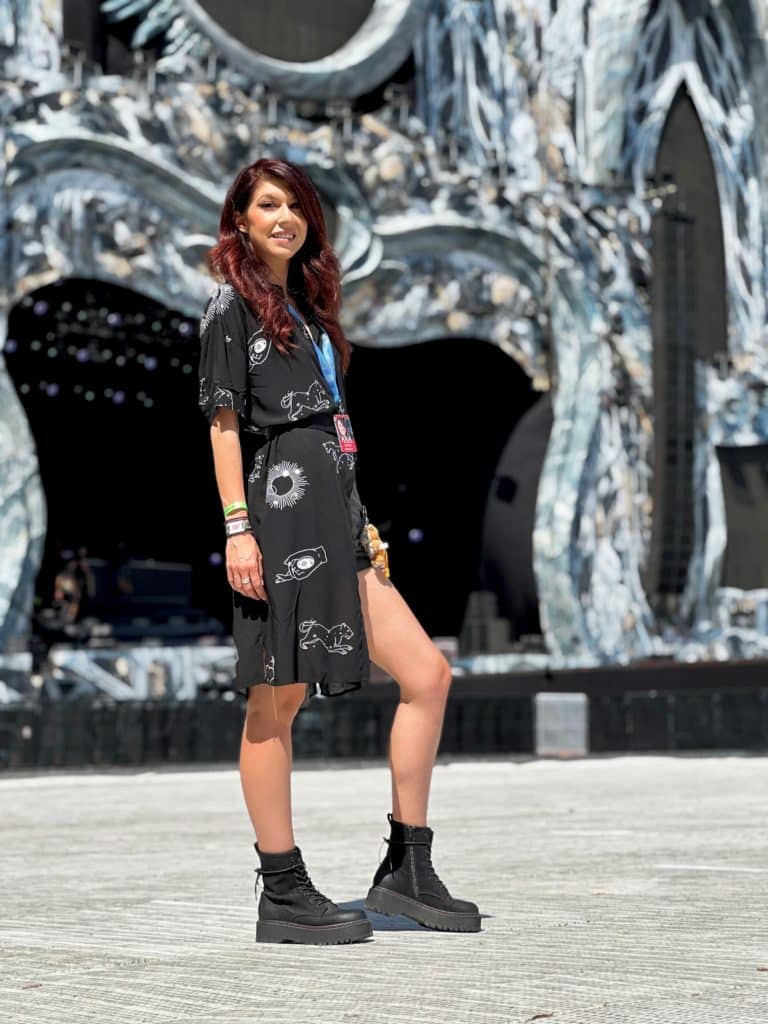
Hi Gina, thank you so much for being a part of our new Talking TEC series! In your time at UNTOLD, how has technology transformed the different elements of the attendee’s experience, particularly thinking about the different elements of the events that you oversee?
Technology has been an important part of our journey as an event organiser and how we understand and improve the experience for our customers. When we first hosted UNTOLD in 2015, we opted for a simple cashless payment system, with the access via a ticket scan – you received the festival wristband and that was it.
In 2017, when Neversea was first staged, we implemented an access control and accreditation system that allowed us to capture more customer data each time we scanned their tickets, giving us greater insights into their preferences; where are they from? what are their interests during the festival? and so on..
The next step was to develop our own online check-in platform and online top-up capability so that our consumers could enter the event more quickly and easily. These initiatives significantly reduced the amount of time festival attendees had to wait in lines, which was a big improvement for us. Everything went much more smoothly because we already had all the information and simply uploaded it to their wristband.
We also developed our own ticketing platform which incorporates all the features our customers need, from the initial purchase to the online check-in, the online top-up services etc. – the platform gave customers the opportunity to customize their profiles, while also giving us the important data we need to improve their experience at the festival.
New for this year, we implemented a wristband delivery service so you can order your wristband in advance and get it sent to your home, so when you arrive at the festival, you’re ready to go!
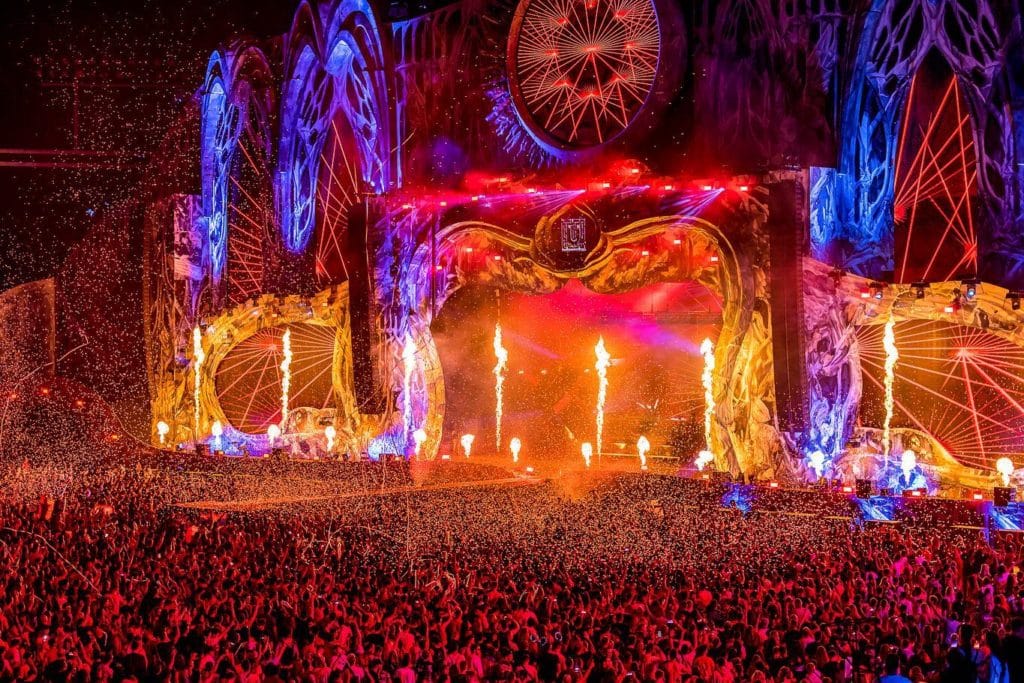
Thinking about the pandemic, how did you seek to mitigate the impact of COVID on your guests and for UNTOLD as a business? And how did you use technology in that approach?
Of course, it was a big blow to everything we did. In the beginning, there was a lot of uncertainty – nobody really knew what was going on. We were asked questions we didn’t have answers for, because so much depended on what the authorities were thinking and what measures they were taking.
After it became clear that we wouldn’t be able to host the events, we wanted to do something to repay the loyalty of our customers. We created something new, something we called the Anytime Voucher, which gave customers who had already bought a ticket the opportunity to redeem it at their choice of future events, without costing extra money and without any extra checks.
This was our way of telling our customers they mattered to us, that we want them to be with us no matter what. We understood that there were hard times for everybody. We have a lot of customers that are coming from abroad so they wouldn’t be able to travel because of the restrictions.
With this scheme, we were delighted to see that over 90% of our customers chose to keep their tickets and to change it into an anytime voucher. We were able to do this directly in their online check-in account, so when they logged in, they had the chance to switch to an anytime toucher in just a few clicks, so our checking platform really, really helped us in implementing this.
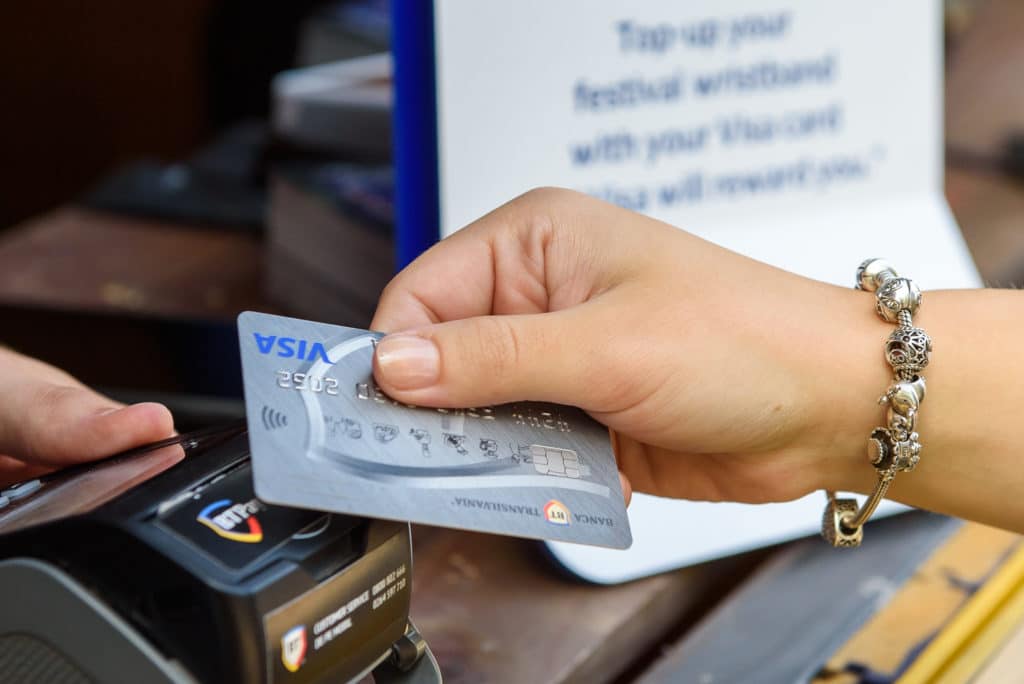
Thinking about the pandemic as a whole, what has been your biggest learning from the impact of COVID on UNTOLD and how has it changed the way you look to deliver your events now?
Our biggest learning was the importance of adaptability. Being part of an industry that is constantly changing, it is mandatory to be able to adapt to every circumstance. We’ve been doing this ever since the beginning, but 2021 was more than that. We wanted to have our fans close and give back to the community, so we did dedicated streams, and special TV productions, and also launched the UNITED initiative – a campaign that brought together authorities, the most important Romanian and multinational companies, the largest media trusts in Romania, as well as opinion leaders, artists, and influencers, with the purpose of lessening the effect the pandemic had over the Romanian community.
I think it also made us realise just how important the event is to all of us. Of course, so much has happened that put everything into perspective, but in 2020, when it got to August and we couldn’t host the event, it was so sad for us. It meant that 2021 was extra special – it was such a big accomplishment to be able to put on UNTOLD that year, with all the different restrictions and safety procedures, and it was quite emotional for us – I remember colleagues crying when we opened the gates to let people back in!
The digitization of ticketing has brought many benefits for event organisers, not least the ability to combat ticket fraud – what systems has hold UNTOLD put in place to track and validate attendance and how have they benefitted the event?
Like I mentioned earlier, when we first started, festival entry was just done on a simple ticket scan. We found that in some cases we had people coming with the same ticket that had already been scanned up to 20 times before!
So, stopping fraud like this was one of the main reasons we decided to work with TEC, to implement a better access control system that would give us information about the customer in advance.
With the new system, if someone bought the ticket and tried to resell it, we could see who the original customer was. Each purchase was linked to personal information like an email address, so it was a lot easier to spot fraud. Obviously sometimes, people need to buy tickets for friends or family and need to be able to transfer them, so we developed our online check-in platform to allow this as well.
Which do you think will have a bigger impact on the evolution of live event ticketing in attendance, blockchain technologies or 5g and mobile technologies?
If we look at the Romanian market right now, blockchain is not that mainstream but it’s something we’re looking into. For example, we had a NFT collection launched at UNTOLD, and we gave our customers the chance to pay for their tickets with cryptocurrency.
I think the possibilities offered by blockchain technologies are endless, particularly around the experiences you can offer fans.
With 5G, the benefits it can offer, in terms of improved connectivity at our events, are huge but right now the costs associated are too high in Romania and there is a low stock of 5G devices.
Thinking about the future of the industry, what other technologies and innovations do you think will help shape customer experience around live events?
I think it’s hard to pinpoint a specific technology because, the way the market is evolving, there are so many new innovations and technologies being introduced that improve different aspects of the customer’s experience but one thing which I think is very important, which is central to a lot of these innovations, is the use of customer data. We are focusing a lot on how we collect and keep our customers data secure as I think it is something people feel strongly about and something that any new technology must have at its core. People want to know that their data is kept safe.
Also, something else which I think is important to bear in mind is that the innovations that impact the industry tend to be innovations that impact wider society – their availability and adoption at events depend on how available they are in other areas of life. For example, cryptocurrencies won’t be able to offer their full potential until they are part of mainstream life.
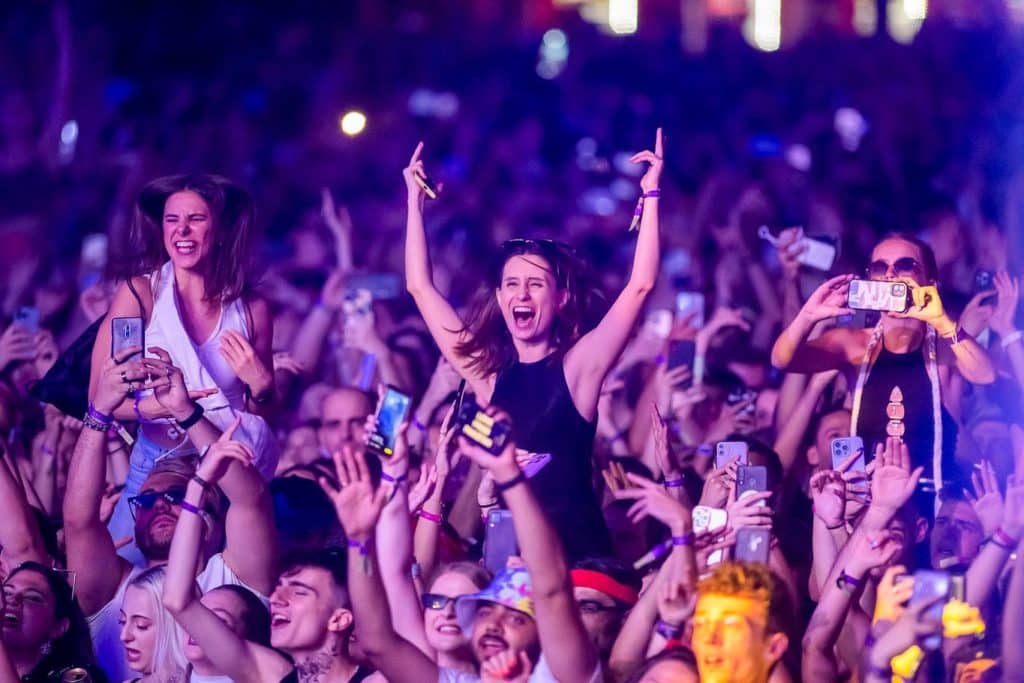
Your career in events has evolved from working in Marketing & PR to taking responsibility for different technical products and projects – what made you change paths and how have you found the experience?
Oh, this is a fun question! I started working in PR & Marketing because of the degree I was doing at university, but I went on to do a master’s degree in mechanical engineering as well. I have always been very practical and had a wide range of interests.
I started doing the Marketing and PR for some small events, some student parties, some small music and arts festivals, that sort of thing but, after doing this for a while, I started to get involved in the actual implementation of these festivals. So, this is where I discovered that I really liked the operational part.
The company was very supportive – they were so open and willing to give you the chance to learn about different parts of the business and try things besides your job.
I started working with the team that was setting up the new cashless part of UNTOLD and Nerversea. I had a small role at the beginning and, as each year passed, I started to have more responsibilities within the team until I became the project manager! A lot of time has passed since then, like any job, it has its ups and downs, but I really enjoy it and I still feel I have a lot to learn – you realise that you cannot always be in control and that things are always evolving, and it is how you adapt in these situations that counts.
At the end of the day, there is something special about the job – when you get to the festival and you see a stadium full of people that are singing and dancing, smiling, enjoying themselves, you look at them and say “I had a small role in doing this”.
What advice would you give to someone considering working in live events like UNTOLD?
If you get the opportunity, you should definitely try it!! Of course, there are going to be sleepless nights and a lot of arguments, but you get to connect with your colleagues and build a relationship with them that is only possible in this sort of environment; one where you really understand you’re working towards the same goal and the feeling that you get, knowing that you had a small role in doing this, helping to have thousands of people have fun and enjoying themselves, I don’t think words can explain what it really feels like. It’s definitely not a “normal” job!
How has TEC helped UNTOLD on its digital journey and how has the relationship helped to contribute towards the events growth?
TEC has been with us pretty much from the beginning! They have helped us develop our ticketing platform, our online check-in system and our top-up platform so really, we have TEC to thank for everything!
I think it would be unfair to call our relationship just a simple collaboration because we are more than that. Over the years we’ve become friends. Marius, the Project Manager from TEC, is the person that taught me everything I know about how an IT business works and what the procedures are, and what needs to be thought about; I want to do this, but what’s the end game?
It has been so great to learn, discover and develop new things with him. He’s always the one who’s the most excited about everything we are proposing but he’s also the one who is always questioning us, asking why do you want to do it?
Our friendship with TEC has really helped us a lot – it’s been fundamental to how we’ve grown as a business and how we plan to go forward.
-
Talking TEC with Gregor Smith, VP of Product – Betting, DAZN
While we are proud of the expertise we have in-house, we are equally proud to have some incredibly talented industry figures in our network of friends and clients. Over the next few months, we will be turning the spotlight on them, bringing you some of their many insights, knowledge and learnings covering a range technical disciplines in sports and live events in our new series “Talking TEC”. To kick things off, we spoke to Gregor Smith, VP of Product – Betting, DAZN.
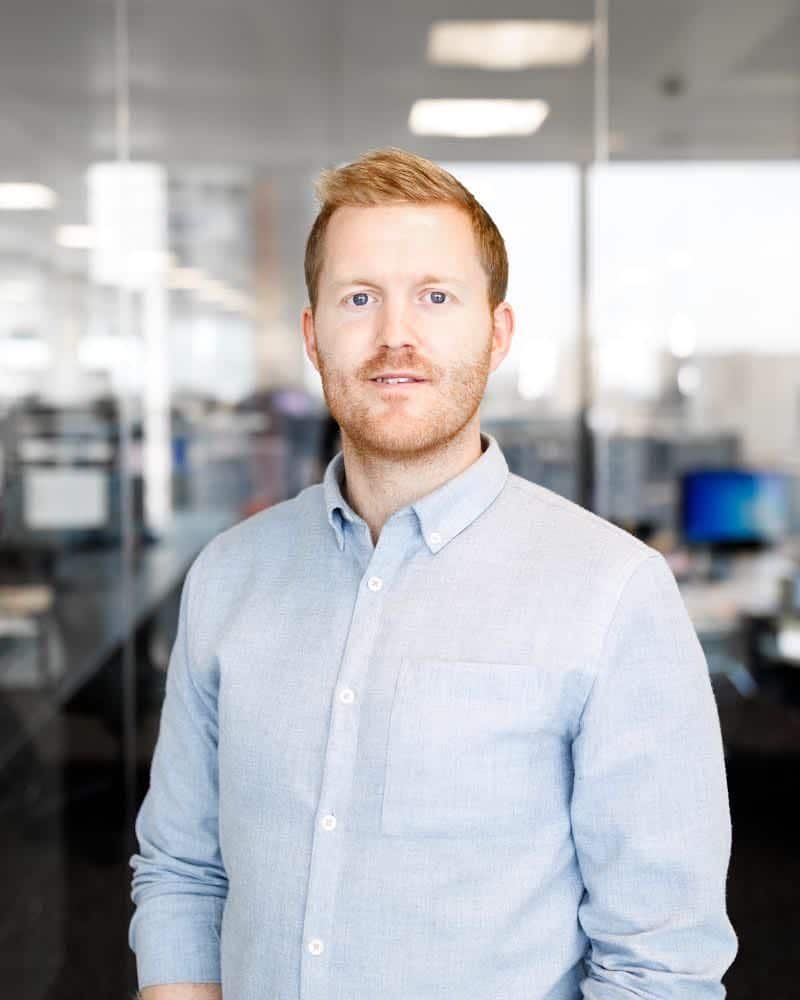
Hi Gregor, Thank you so much for being our first guest in our new Talking TEC series! Over the best part of a decade, you have developed a career within digital product development in sports – how have the needs and expectations of sports consumers changed in that time and what have been your biggest challenges in developing products to meet them?
I feel the generational gaps between sports fans are growing wider, meaning the needs and expectations of sports fans using the same products are very different. Stark generational differences exist in device usage, lifestyles, the level of fandom, the thirst for content and data, the need for digital social integration, attention spans and the amount of disposable time available for sports consumption. This means we have challenges in creating product experiences that cater for all sports fans – where adding a new feature may delight one generation but clutter, confuse and drive away another. As a result, product development themes such as personalisation, customisation and education have never been more important.
More recently, the pandemic brought about seismic change and accelerated digital transformation in many industries. From a technology perspective, what has been your biggest learning from the impact of COVID and how do you think it changed the way that the sports and live events industry operates now?
My biggest learning was how the industry had clearly been sleeping on fan engagement around live events. It took empty stadiums to finally get the industry to properly focus on new ways to consume live events if you can’t physically be there.
Live sport became more accessible at home, where pay-per-view streaming, despite some ridiculous costs, has left many fans wondering why they’ve never been able to simply pay to watch their team when it suits them. Virtual ‘Watch Party’ experiences were born, where fans can watch along with their friends, fellow fans or even athletes and club legends themselves. Huge strides were taken in virtual reality stadium experiences, where for example the NBA allowed fans to watch from virtual courtside seats.
Along with the immense technological advances in reducing streaming latency, remote commentary and production and alternative camera views, sports fans are really going to benefit from how this new industry focus on living room fan engagement will super-charge their viewing experience.
You’ve recently joined DAZN as VP of Product for Betting – where does sport betting sit in DAZN’s strategic roadmap and how do you think a betting product will complement their existing sports content services?
For us at DAZN, we are committed to revitalising the sports fans’ experience by delivering a range of rich digital entertainment. Revolutionising sports betting is just one aspect of that vision.
For those who like to bet, we know it’s that feeling of having ‘skin-in-the-game’ that brings them an extra level of excitement which intensifies the thrill of watching live sport. This tight convergence of sports media and sports betting is the future, and we know that fans want a more immersive and integrated experience.
We will be looking to bring our subscribers primarily a safe and fun way to complement their love of live sport with a focus on recreational, gamified and social betting experiences.
It’s product development that actually shapes these technological advances you mention. By having an in-depth understanding of how sports fans live and breathe means, as a product manager, you can really get into their heads, understanding what really motivates them, what triggers them to behave in a certain way and how their daily lives shape how they consume their sporting coverage, news, data, highlights, etc. With this deep understanding, you can start to identify problems and spin these into opportunities and then work with technologists to define innovative solutions.
It’s the product manager’s job to represent the customer and do everything they can to create experiences that not only solve problems and meet needs but truly delight their customers.
With the consumption habits of Gen Z fans pivoting away from live sports to shorter form, original content, how does a company like DAZN adapt and what sort of products can be developed to support the relationship with these fans?
You are right, the data is screaming loud and clear that Gen Z fans are consuming less longer-form live sport and in fact it’s clear that they are less interested in sports in general. It is absolutely essential to not ignore these trends and focusing on real-time distribution of snackable, mobile optimised clips and highlights is certainly key.
However, I am adamant that long-form live sport consumption is not ‘dead’ as some publications may preach! It’s just that the way these broadcasts are packaged up needs to change drastically. Streaming platforms are going to pave the way for this movement with the ability to bring fans together in social experiences, to allow data and insights at your fingertips, to change camera angles or commentators, to make predictions and play games to win prizes and of course to place bets.
All digital products are certainly facing a battle for the valuable attention of Gen Z customers, but instead of just accepting that they only want to consume shorter-form content, the sports industry should focus on complementing live sports with other experiences and behaviours that make them tick.
Thinking about the areas of the industry you work / have worked in, which do you think will have a bigger impact on sports and live events and why – 5G or Blockchain technologies?
I think I have to say 5G! Obviously, there will be clear benefits to sports streaming speeds, quality and connectivity; however, I want to focus on how 5G can impact the live event experience.
Not only will 5G alleviate everyday problems of not being able to send a WhatsApp message in a stadium, but it will allow you to stream instant highlights or to order food and beverages directly to your seat.
However, the most exciting advancement for me is in the augmented reality space which will literally add a whole new dimension to the fan experience. Think pointing your phone directly at a player to see their live stats, think having a watch along with your favourite club legend commentating pitch side, think playing an AR-based game against all the other fans in the stadium – the types of content-rich experiences you get in your living room now brought to Row Z!
Much like the live video streaming experience, the in-stadium experience will need to evolve to ensure that sport keeps capturing the hearts and minds (and attention!) of the latest generation of sports fans.
What other technologies or innovations or do you see shaping sports & live events over the next five to 10 years?
As a keen competitor myself, I really hope that we continue to see innovation in the space of wearables and sensors, specifically for amateur athletes. We’ve seen what the likes of Strava has done for runners and cyclists, allowing them to track their statistics and trends and compare them to not only their friends and direct competitors, but to elite athletes.
In the next 5-10 years I see all sporting equipment and clothing – clubs, bats, balls, boots, gloves, shirts coming equipped with sensor technology, allowing amateur athletes to create their own profiles of statistical insights even in some of the most complex of sports. If someone can produce something affordable for the everyday competitor, then they will be onto a winner.
I also predict that we will continue to see the rise in affordable camera technology being installed at recreational sports grounds, allowing live footage of every level of sport to be broadcast across the globe, with AI technology being able to produce live stats and insights.
It really could transform the way we amateur athletes play, enjoy and improve at our favourite sports. I just hope my knees hold up so I can experience this for myself!
Finally, what advice would you give someone interested in pursuing a career in product development in sports?
Potentially the biggest cliche heard in product development is “know your customer” – but it’s true.Don’t just assume that being a sports fan yourself means you know how a sports fan thinks, taking that for granted can be the biggest mistake you make, and you will end up building a product for yourself and not for your target audience.
Do everything you can to speak to your audience, observe them in their chosen habitats and take time to understand their motivations, triggers and lifestyles. Only from there will you then be truly able to understand what experiences you should investigate to create.
For those looking for a start in product management in the sports industry, be passionate about putting the sports fan first and solving problems that will enhance their love for the game, whatever game that may be.
-
#WomenInTechnology – Talking to Anamaria Sfîrlea
Did you know that only 5.31% of IT Specialists are women?
Gender imbalance in the workplace was a problem that has been debated since the beginning of the century. Now so many women are working, that it is quite rare not to see at least one woman in every domain.
Women are very remarkable in what they do. They stand out through their hard work, ambition, perseverance, and amazing results. Our colleague Anamaria is like that. You may have met her in a previous ClujLife article. She juggles being a developer at TEC and attending master’s courses at the Faculty of Mathematics and Informatics from Cluj-Napoca.
For Ana, school always came first, she didn’t think for a moment to get a job while attending college classes. At the end of year two, she did an internship, but it was during the summer. During the pandemic, she joined the TEC team in the fall of 2020, after a well-deserved summer vacation. She started looking for a job with the desire to work with different technologies, but she felt so great during the technical interview that the technology stack wasn’t all that important in the end.
My mother is a teacher and she raised me and my brother with the idea in mind that school and education are the most important things. I’ve always seen school as a job. Even if I didn’t get paid, that was my job and I had to take it seriously, I had to give everything I could, because otherwise I couldn’t be happy with myself. My work schedule is flexible, and this helps a lot with school. There was always understanding if I needed to take an exam or attend an important course. And this was made clear to me from the very beginning – that the company values our education and us completing our studies. For now, I want to learn as much as possible, to expand my knowledge related to the practical part of my job. In college I receive a lot of theoretical information, but it does not compare at all with what is happening in my actual job.
In the beginning, Anamaria was assigned to a big project. She learned, tried to integrate and understand how things work. She told us that she felt very quickly treated as an equal, not as a “new colleague”, and the worries related to the fact that in TEC people work mostly remote disappeared after the first week. Initially, she was slightly stressed that she did not know her colleagues and that she would not know to whom to turn to in case she needed help, but she immediately realized that many were aware of this and they contacted her, offering to help her. Later, Ana was assigned to a smaller project, about which she spoke with great enthusiasm.
The project is exactly what I wanted – a project from scratch, where I can go through every development stage. And a junior developer rarely has this chance in a company. I learned a lot while having to solve problems and through many knowledge-sharing sessions with my colleagues. Me and another developer started this project, along the way we were joined by others. Now that we finished this project, when I look through the code and see things I implemented, my heart grows. I like to think that I have an essential role in the team I am part of.
In the months spent at TEC, Anamaria realized that the human side is very important in the work environment. Having the experience of an internship in a corporation, she was pleasantly surprised to discover that here, the focus is mainly on people.
Unlike large corporations, where procedures matter a lot, here people come first. The work environment at TEC is dynamic, challenging and I didn’t get bored in all the months I spent here and I didn’t get to consider my work a routine. I am a sensible person and if I feel stress or pressure from others, I can’t cope anymore. It is important to have people around me in whose presence I can feel comfortable, especially since there are days in which I talk more with my colleagues than with my family. If you decide to join us, you can expect very friendly colleagues, willing to help you, but also a place where you can learn a lot about what IT projects mean.
Of course, the conversation with Anamaria could not end without touching the main topic of this article, what it is like to be a woman in the IT field.
I was really amazed when I saw how many women are working at TEC when I arrived. I also remember my first call with the project management team – only women were present. It’s a general perception that the IT industry is male-dominated, but it’s not. IT is not a place of discrimination, nor have I ever thought of any difference for us as women.
Even though studies show that only 5.31% of IT specialists are women, in our company, there is a rate of 43% female developers.
-
The UNTOLD and Neversea Partnership – Behind the Scenes of one of the greatest events
The sixth edition of the Untold festival was concluded not too long ago, here in Cluj-Napoca, and we are happy we got the chance to be there with them every step of the way, still. We started our collaboration in 2016, and since then we took over the In-Town platform, UNTOLD and Neversea websites, and everything related to access and data sync – online check-in, top-up, presales, digital marketing, and integrations with other platforms. Perhaps some of you read the article published in Cluj Life about our event platforms.
Marius Lupou, the project manager who handles the UNTOLD and Neversea client shared insights regarding the challenges we had to overcome so we could keep delivering performance. What he was saying back then was:
“The first UNTOLD festival was held in 2015. After this first year, the conclusion was drawn, there was huge potential and a decision was made, to start working on our own ticket sales platform. In 2015 and 2016 the access was made through colored wristbands; we couldn’t stick with them if we were to grow, as those wristbands could be easily taken off and shared with somebody else, which builds up to huge financial losses for the organizers; there is also a certain strictness regarding participants safety that could not be covered by a wristband like that. This was the improvement for 2017 – we replaced them with RFID wristbands (Radio-Frequency Identification). Around the same time, we launched the online top-up platform, and gradually, we added other functions to it, like the auto top-up. The whole platform was developed over time”
In the matter of Untold highlights, a big achievement for us was definitely the festival record we set in presales 2019 when we had 15.000 tickets sold through our platform in 30 seconds.
The question Marius answered many times was “How come it didn’t crash?”Why didn’t it crash, Marius?
“On our platform, once a user enters the landing page, all he has to do is to select the number of tickets, to check the terms and conditions, and then he’s gone – no additional data processing. All his information – email address, name, phone number, banking information, and so on, is filled in weeks prior, so when the user logs in to buy tickets, he can complete the purchase in a few seconds, as he’s already registered. Furthermore, before the presale campaign, we also made a video tutorial on the platform, showing every step one must follow in order to get a ticket.”
Up to this point, we didn’t catch Marius enough during smoke breaks, in order to hear his complete feedback on how the latest edition of UNTOLD festival went technical wise, but the overall feedback we got so far is that everything went smoothly, and everyone is happy with the result; – which completes the event streak we had in our company these past couple of months. See you next time on #PeopleBehindProjects.
-
#PeopleBehindProjects – Talking to Marian Sababei
It’s not a secret that we are fascinated every time we have the chance to speak with and about our people, the #PeopleOfTEC. Today, we would like to introduce you to one of the #PeopleBehindProjects: Marian Sababei, TEC’s Project Manager, responsible for financial matters and HR Department.
Maybe some of you remember him from the ClujLife article.
Being a project manager, the nature of Marian’s work enables him to see, feel, and understand the company statistics at a completely different level. The best part of it is that he also witnesses first-hand how the numbers are translated into the daily reality of the office. But, first of all, let’s take a quick look at him as a person and as a professional.
What Does it Take to be Project Manager?
Certainly not what one would first imagine. Marian graduated Automation and Computer Science at the Technical University of Cluj-Napoca. He was always good at math, so it was the obvious choice. But, he also owns a degree in Cartography from the Faculty of Geography, within the Babeș-Bolyai University. He never intended to practice in this area but was simply passionate. His professional journey started in Timișoara, continued in Târgu-Mureș, now taking him to Cluj, at TEC.
“After graduating, I joined a corporation where I discovered many things and held various positions over time – SAP consultant, IT Project Manager, Head of Retails Solutions. But, after about 12 years, I realized that I would need a change: I wanted to see what life in another company feels like, as a Project Manager. It was a major shift for me. During the first 3 months, I just blamed myself for leaving my old job. There were many differences I didn’t expect and couldn’t foresee. After a while, it hit me: I realized that my experience in the corporation could be very useful when it comes to workflows, administrative processes, and HR.”
The Big Picture
As Project Manager, you always need to keep an eye on the big picture and to be crystal-clear about what you’re looking for in the people that will someday be your colleagues. According to Marian, things are and need to be kept pretty simple, you know.
“We’ve always looked for people who are smart and willing to work. The rest can be learned. Even when it comes to the interviews we conduct and the tests we give when we’re searching for a new colleague, we place great emphasis on logic. Of course, we also look at the technical skills, but we are very much looking for people who think for themselves and who can be part of a team, where we all aim in the same direction. We are constantly searching for people with whom we know we’ll enjoy working. After all, we spend a quarter of our lives at work, so we need to at least make sure we feel good around each other. Attitude matters a lot. You may be the best technical person out there, but if you don’t have the right attitude, we probably won’t be able to consider you as our colleague, for the simple reason that you won’t fit-in with us.”
Women or Men in Technology? Both, Because They’re #PeopleOfTEC
Marian joined the TEC team in 2018 when the company was 3-4 years old. It was always about a natural, organic growth, in which the distribution of people in TEC was naturally balanced, says Marian. During that period, quite a few women decided that they want to become #PeopleOfTEC and eventually became part of our team.
“Even if it is not generally accepted, there are positions for which women are more suitable than men. Why? Because it’s in a woman’s nature to be more industrious, to own a finer sense of observation, or simply to cope with some tasks better than a man would. At TEC, there is this balance between genders, and that is a must for us, as we need to cover a wide range of skills when working. The advantages of a gender-balanced team are numerous, but the most important thing is that the number of conflicts of any kind decreases, and, as a man, you’ll take on an additional responsibility when it comes to how you behave and how you talk when something goes wrong.”
Why to Become a Part of the #PeopleOfTEC?
Now, you might wonder whether you should consider becoming one of us, one of the #PeopleOfTEC? Or perhaps why should you consider TEC as a future employer?
“TEC is a place where you come to grow. Any new ideas are welcomed. Nobody cuts your momentum as long as there is no negative impact on others or projects. #PeopleOfTEC are encouraged to implement the new things they come up with, not just launch ideas. On top of this, there are the certifications and courses, where our colleagues have all our support. We also offer days off in addition to standard leave for them to learn and invest as much time as they need or feel, at their own, steady pace, in their professional development. They want and need to have nationally recognized knowledge, to be up to date with the latest news in the field. This is also a reassurance for us, we know that we have competent people from several points of view. I would also add the openness that you will find here – both when it comes to management and colleagues. We never had a corporate structure, we don’t wait for our manager to tell us what to do, we keep the communication open at any level, and we constantly offer each other feedback.”
If things stated earlier above did not yet convince you to consider becoming one of the #PeopleOfTEC, I see myself forced to mention that we recently moved into a new office, looking better than ever and with every perk you would need. But it’ll be entirely up to you if you’ll visit it or not – your living room might as well be the place you do your magic from. Are you ready? View our openings.
-
How to keep employees engaged in pandemic times
The past year was very unpredictable for many companies. Most of them found ways to adapt to the new conditions, and their projects thrived, as well as the industry they operate in. We believe that the vast majority would agree with the fact that work from home improved our work – personal life balance. Not going to start a debate on that, as we would better share some insight on how we, as the HR department here at TEC, managed to stay connected to the team and also address some of the concerns that appeared during the time we couldn’t have our water cooler discussions or smoking breaks together.
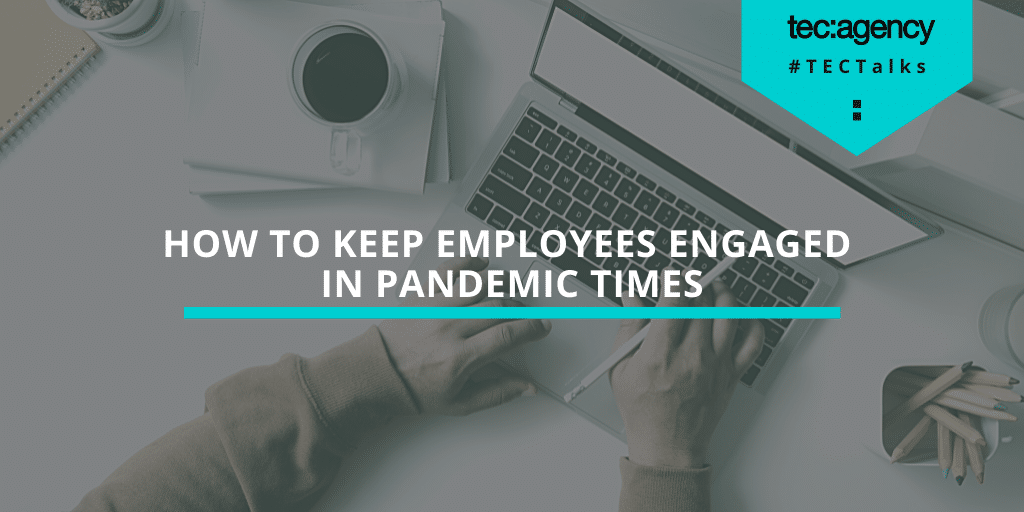
We kept hearing about eNPS and how companies use it to make sure everyone’s happy. So, we thought we should give it a try; not because we didn’t have enough “forms for employees” ideas, but because we didn’t have one so short; not at that time, anyway.
Let’s go over a brief description of what eNPS surveys are
The employee Net Promoter Score (eNPS) is based on a 0-to-10 rating of how likely an employee is to recommend TEC Software Solutions as a place to work, with 0 not at all likely and 10 extremely likely. eNPS scores range from +100 to -100.

Then, depending on the rating you’ve been given, you need to find out what are the core strengths of the company and the areas that can be improved.
The most important factor with this survey is that it is anonymous. On one hand, this fact provided us with many good jokes, but, on the other hand, we also got some great, honest replies and suggestions for improvement. Both outcomes gave us, the HR, purpose during a time when there was only so much paperwork to do.
Of course, we did not achieve great success with the eNPS at first, but we decided to stick with this survey and send it twice a year, in June and December, and compare the scores. This quantitative data, together with the open answers, helped us get a better understanding of the team’s perspective.
These new insights, paired with a few ideas we got from past surveys, led us to a series of informal events split into 5 modules, covering all there is to know about the one core “ingredient” in improving any human interaction: being more emotionally intelligent. We had several other activities that came as suggestions through eNPS as well, ideas like game nights, team building activities, and even all staff events both for work updates and socializing.
How are eNPS and ISO linked?
This year, we got ISO certified, and since ISO’s mantra is continuous improvement, we adopted the same mindset.
Then, we took this approach and adapted it to our context. It already feels like we’ve come so far, but we need to keep measuring our improvement, as part of the quality management system.
Any improvement can be easily measured when it comes to numbers, but how would one measure the overall satisfaction of our team members? How would the management acknowledge that maybe some decisions were not taken in the employees’ best interest? The answer is the eNPS, because it tells you if your team members would recommend the company as a potential workplace to their friends.
Thus, we decided to use the eNPS score as part of ISO documentation, and keep improving it as we developed our understanding of what’s concerning our colleagues and discovered its potential.
Currently, our main objective in regards to the eNPS, is to improve the response rate, as our last eNPS dropped to a 47% response rate. The score is, however, almost excellent and we think that, as we increase the response rate, the score will get even more meaningful; we’re looking forward to our eNPS in December.
Also, we learned that the only way to make this survey work is to focus on the things that we can control, such as organizing the recommended events, certain coaching sessions, and so on. The point is, these surveys helped us be consistent with things that are not that popular, or had a rough start- so rough that you could easily decide it’s not worth the energy invested.
Receiving good feedback from one person in that regard makes our job so rewarding. What comes next? Us coming up with new ideas, or old, there is no point in reinventing the wheel, that satisfy people’s needs in regards to the work environment, communication, and basically, everything that an HR department has a relative amount of control upon.
Alexandru Olariu Human Resources Consultant
-
The future starts now – Grooming tomorrow’s software developers
At TEC we’re all about continuous improvement, especially when it comes to our personal and professional development. This mantra also comprises an open mindset and the commitment to help the younger generations in their quest of discovering and beginning the right career journey.
This year, it was Ioana’s, Timotei’s, Lucian’s, and Sergiu’s chance to get a taste of the life of a software developer. From recruiting and until their last day in the company, they got to work closely with our HR and Software Departments, represented by Gabriela and Bogdan, as they teamed up to build a vacation planner web app for TEC employees. The best part of it is that all of us had a blast while at it.
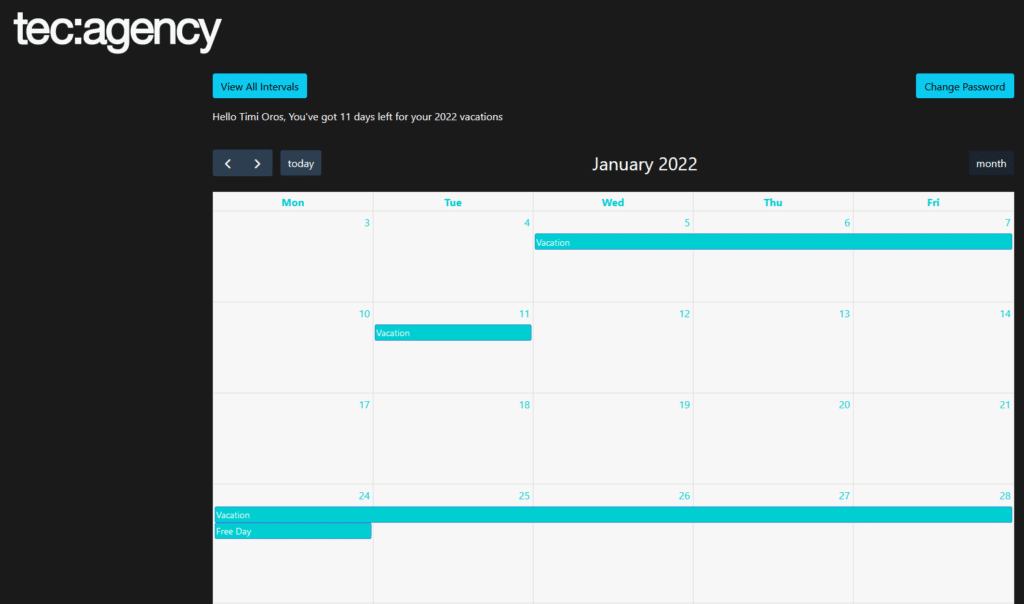
This being said, let’s jump straight to their experience as interns.
Ioana – teamwork makes the dream work

This internship experience at TEC was one of the most amazing ones so far, not only because I got to learn and develop myself, along with my teammates and colleagues, but because I discovered a new family, where everybody helps and supports each other. Nothing was a competition, and everyone did their best in order to accomplish the goals and to help others grow.
Timotei – enthusiasm is the first step
As my first internship, I didn’t really know what to expect. I started off being confused and anxious, but at the end, I left more determined and more energized than ever. Describing my experience at TEC is something that’s hard to be put in words. Here, people are smart, kind, companionable, and the level of professionalism is top-notch. I gained invaluable knowledge, made friends, and had great fun. Thank you, #PeopleOfTEC!
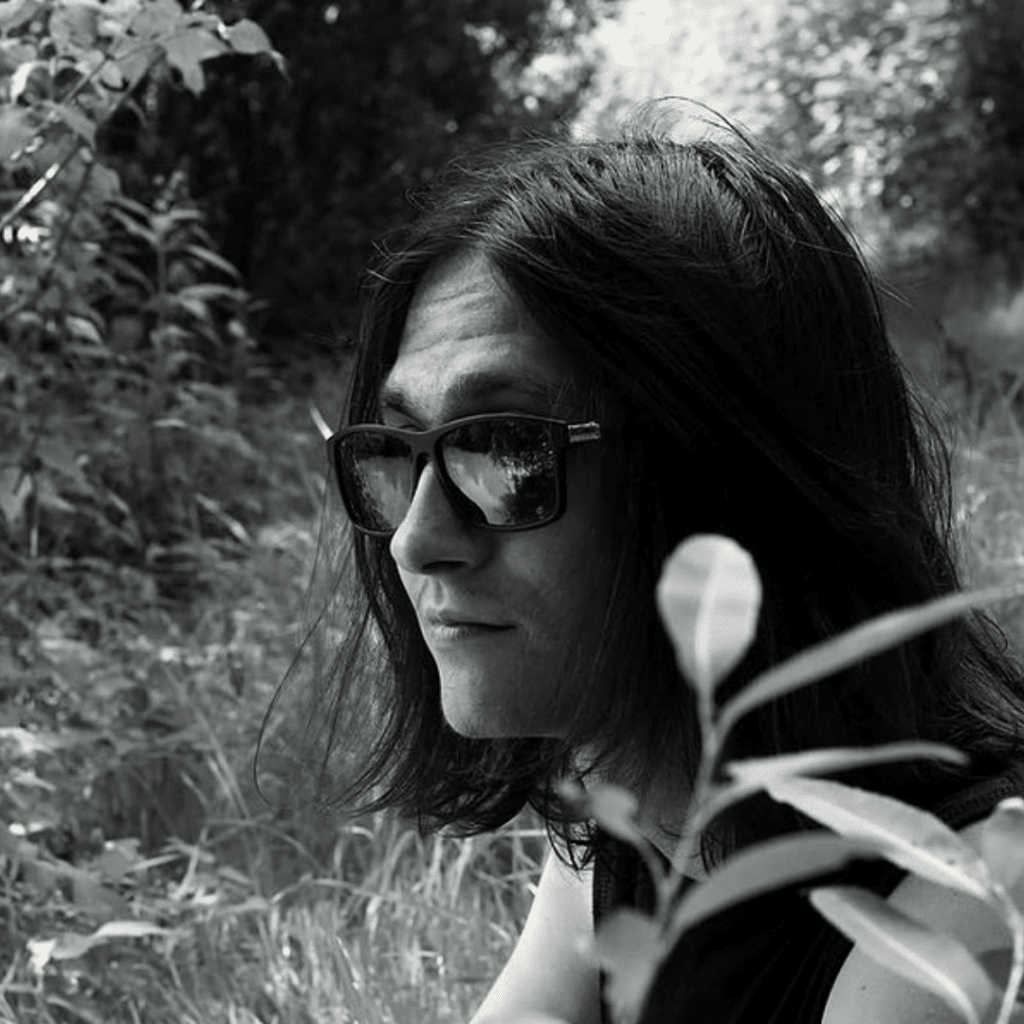
Lucian – hard things are hard

Hi, I am Lucian and I was one of the 4 interns at TEC during the summer of 2021. I am currently attending a 3-year bachelor’s degree at the University of Bristol in the United Kingdom. At the time of enrolling into this internship program, I have just completed my second year of studies and I was looking to gather as much relevant work experience as I could over the summer.
I feel like I want to speak about my intern experience as it was the time I developed the most in such a short period of time. The #PeopleOfTEC welcomed me into their office and made me feel at home for the whole duration of the internship. In the 8 weeks I worked here, I learned about many programming principles and programming languages. All of this with the help of the amazing employees working here, who are not only friendly, but also enthusiastic about their craft.
Me and my colleagues managed to make a web app during our time at TEC. This app is now in use at TEC and it has been such a great motivation knowing that we are working on a project that will later be used by real people, people we know.
I guess that what I am trying to say is that I would recommend working here to anyone. The employees are really nice people, the experience was great, we learned many things, we managed to practice what we learned and we become better developers overall.
Sergiu – sometimes you win, sometimes you learn
I thoroughly enjoyed my internship this summer at TEC: Digital Agency and have acquired very valuable experience.
At the beginning I was reluctant when it came to taking part in an internship, but this one changed my point of view.
The project me and the other interns have worked on has been practical and accessible and has helped us learn new things and work with state-of-the-art technologies.
The people and the atmosphere at the office were also really welcoming and any help required was granted to us without hesitation.
Overall, my experience as an intern at TEC: Digital Agency was an unforgettable one and really got me wanting to work with them as soon as possible.

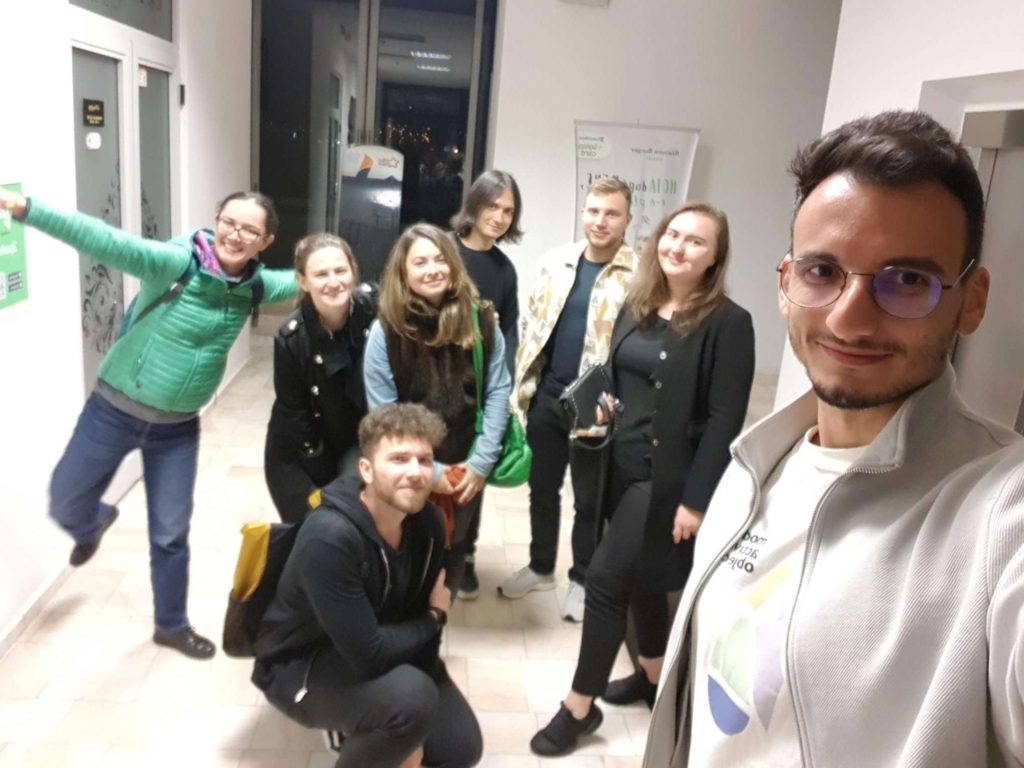
In the end, everyone involved in the project felt like the 40 days these amazing people spent with us passed with the speed of light. We always try to find what is best in people, and, with Ioana, Timotei, Lucian, and Sergiu it was extremely easy to do so.
Never stop learning! -
Onboarding: a hassle made fun
Onboarding has always felt like an out-of-time, out-of-place phase. You got over the interview phase (phewww, 😌) and now you don’t really know what you had let yourself in for. You have to sign a lot of papers, agreements, you don’t actually produce anything and you need to meet a lot of people that you can’t always see-through, especially if you first meet them online. Don’t worry, we know how that feels and it’s our priority to help you blend in and get in with us.
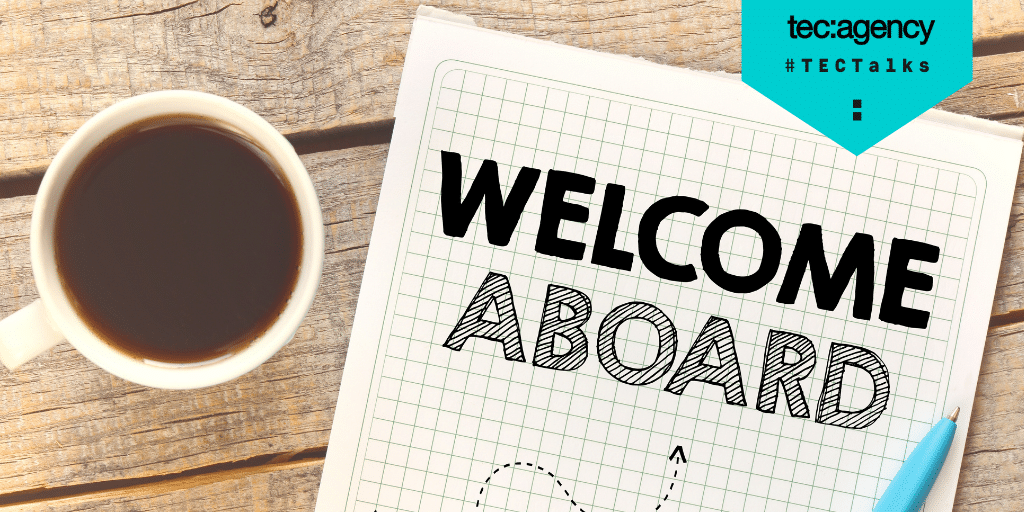
Besides the predictable medical check-outs, laptop receptions, document sign-ups, ISO instructions, health and safety at work, we try to stretch our arms open towards new hires, both as future colleagues and as future friends. As a newcomer, we invite you to read the stories of your colleagues on the company’s blog. Most of them left breadcrumbs for people to connect at a deeper level, talking about turning points in their lives, people that made an impression on them, passions, hobbies, dreams, goals, and about how they ended up working at TEC. Another thing we do is to have you meet Diana, our English communication reference. She’ll help you brush up on your English and soft skills, prepare your vocab for small talks, and ultimately sketch your profile to open parentheses for others to click with you.
Even if we are flexible and people can choose to work from home, we’ll try to lure you to the office with goodies and good coffee to get to know you face to face.
If this does not persuade you, the feedback from our colleagues might:
“I am constantly learning something new every week, I am evolving and I can get as involved as possible in the project”
“One success story to share would be the process of implementing a platform dedicated to our department (BambooHR). An implementation that, through a lot of communication and good organization, was a breeze.”
“Starting at home is really a challenge. A challenge to talk every day with people you don’t know and haven’t seen in your life, to share long hours with them, and talk to them about work-related issues to personal life. Luckily people here are very nice and tried to make me feel “at home. ;)”
All in all, the onboarding process should go smoothly, especially using the BambooHR tool that has checkboxes for all the steps you need to take along the way.
Join us, let’s write stories together!
-
Soft skills and communication in English
A people improvement plan using soft skills and English
Considering the unprecedented covid situation, thinking out a people engagement strategy turned out to be more challenging than it had been before. We turned towards a soft skills and communication in English strategy in order to make it work.
- 1
- 2
